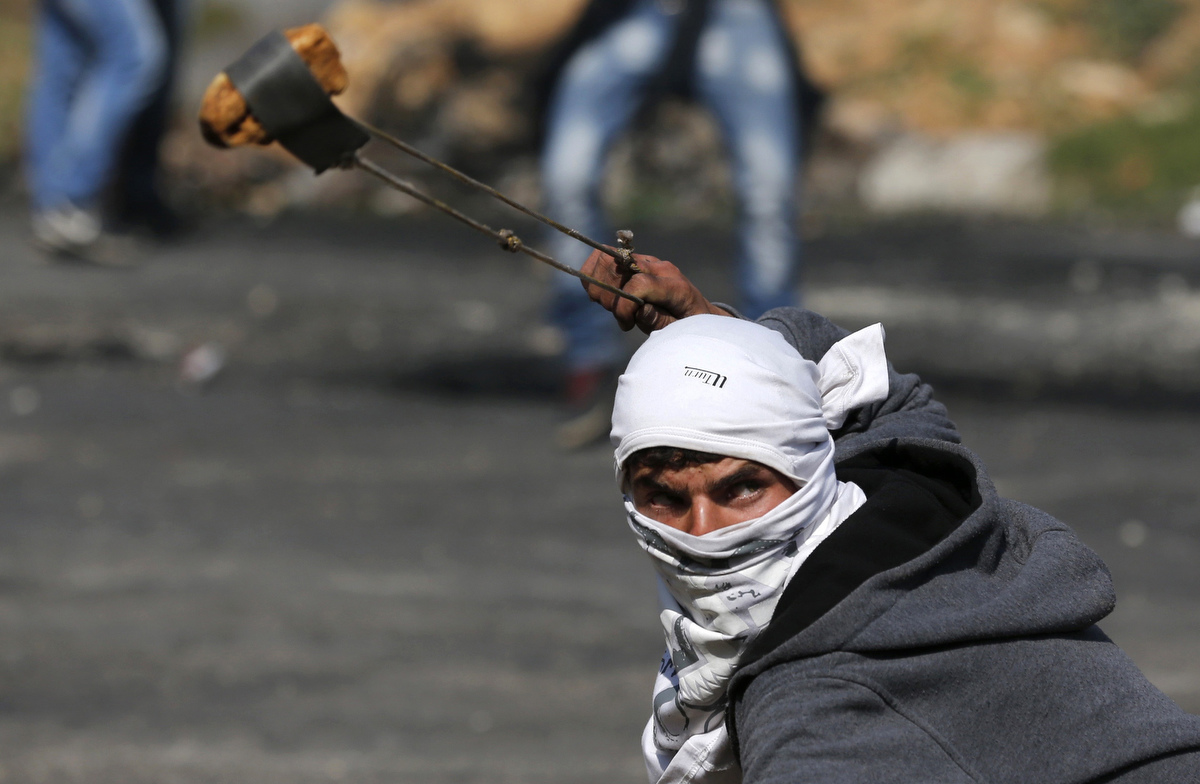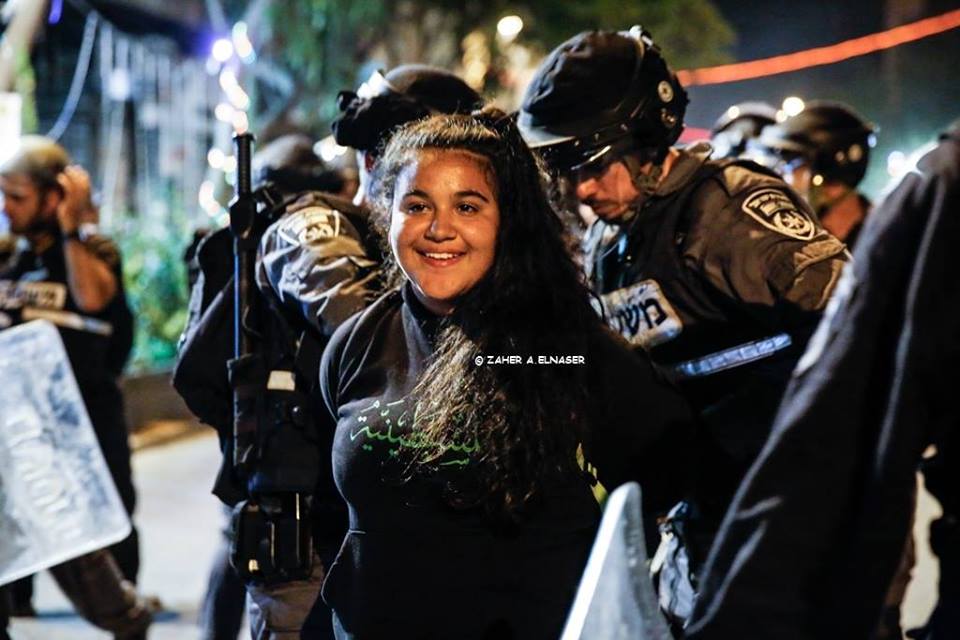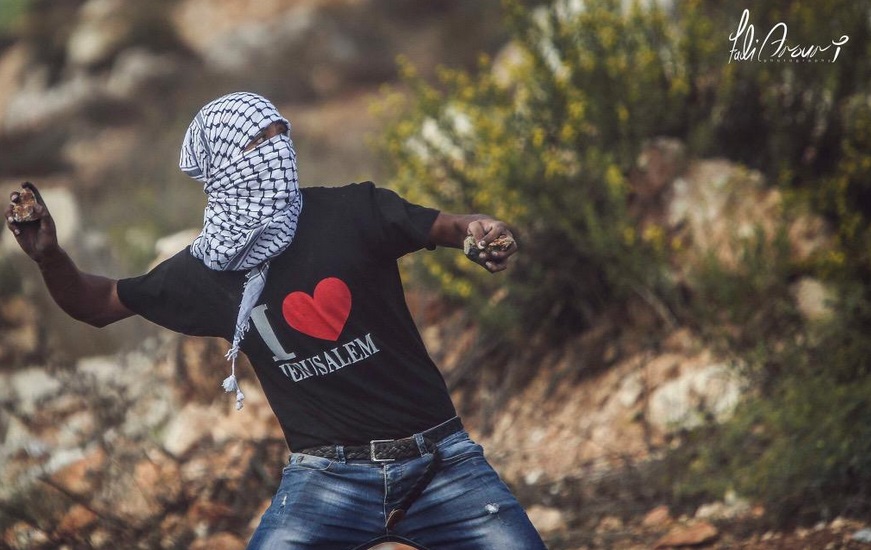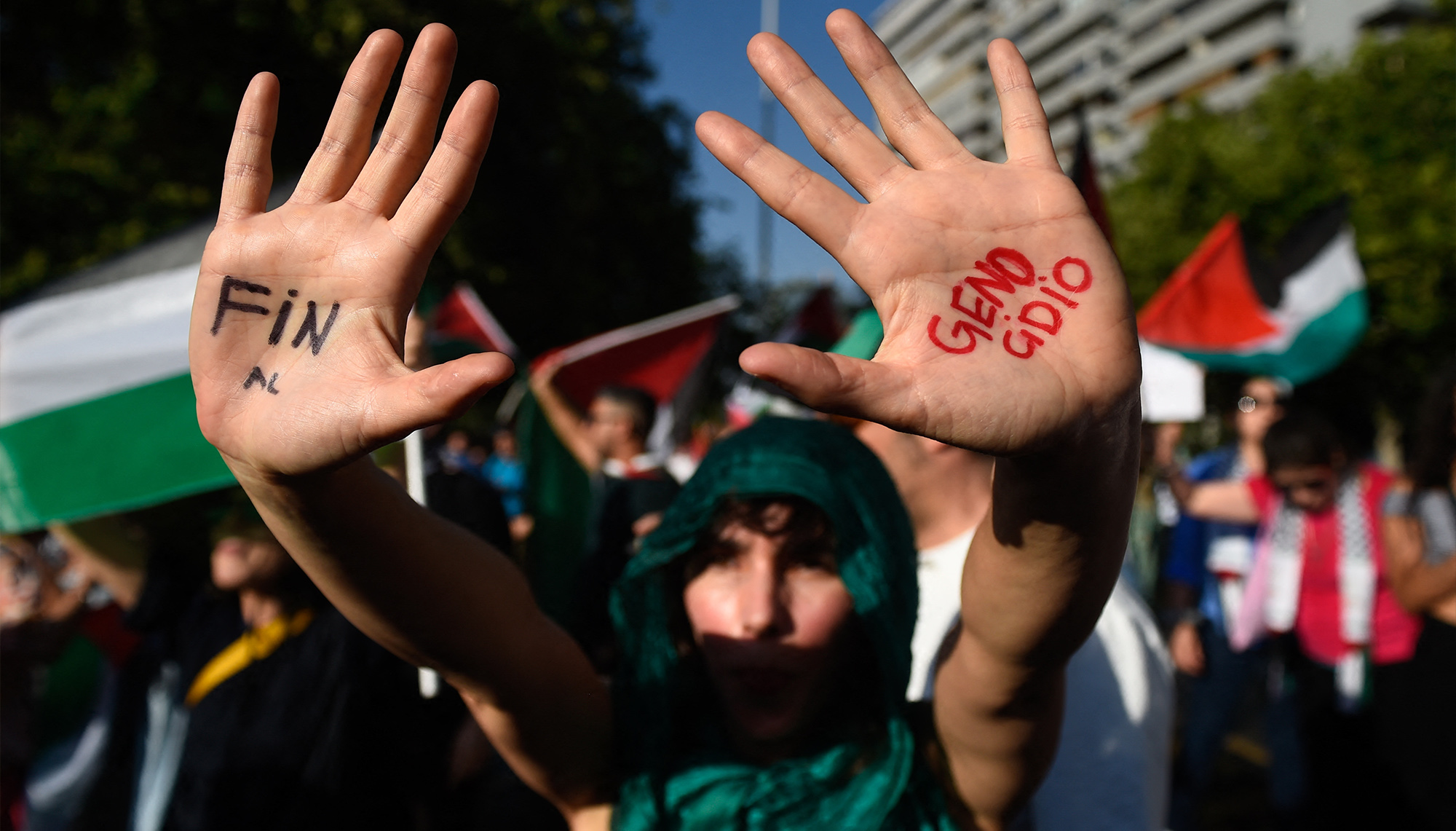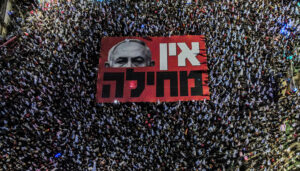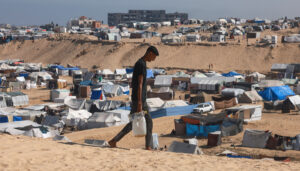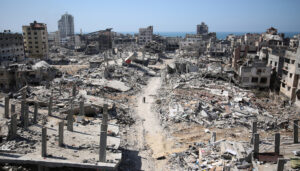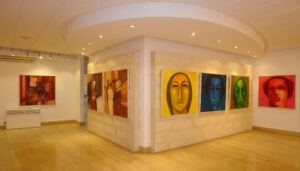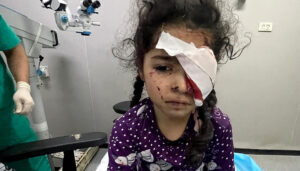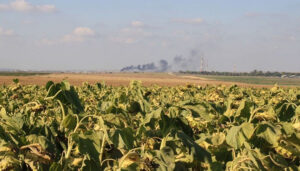By Budour Hassan
This article was originally published in the writer’s blog.
In 1995, when Samar became pregnant with her fifth child, doctors suspected that the fetus had a growth deficiency and would not survive.
Samar, her husband Ibrahim, and their four other children had just settled in Occupied Jerusalem’s Shu’fat Refugee Camp, with Samar’s mother Nawal looking after her with the utmost care and affection. Samar delivered a perfectly healthy boy who they named Subhi after his maternal grandfather, a resistance fighter with the Palestinian Liberation Organization during the 1970s and former political prisoner in Israeli jails. The young Subhi’s father, Ibrahim, had also been imprisoned in those jails during the First Intifada. As had two of young Subhi’s brothers, who each spent nearly a year imprisoned.
When Subhi was as little as eleven years old, he would often be seen throwing stones at Israeli occupation soldiers who had come into raid the Camp to carry out arrests. Bassel al-Araj, one of the Camp’s pharmacists at the time, recalls that the young Subhi would collect few stones just outside his pharmacy, throw them at soldiers, and then run inside and hide behind the counter. He could successfully repeat the trick over and over again as it effectively left the soldiers clueless as to where the stones came from. Subhi, nurtured by his rebellious grandparents who had been ethnically cleansed from their homes in al-Lydd during the 1948 Nakba, was eleven, and he neither feared arrest nor intimidation by the Israeli army, his tender age notwithstanding.
On Thursday, 8 October 2015, a now 19-year-old Subhi Abu Khalifa was to wound an Israeli settler in Jerusalem’s French Hill via stabbing. A photo of him under arrest by Israeli occupation circulated widely by Palestinians on social media. In it, he was beaming a smile.
Subhi Abu Khalifa had joined a growing list of Palestinian teenagers adopting the “lone-wolf” tactic of attack. Previously used in October and November of the year before, the tactic has today become the symbol of the latest wave of Palestinian revolt against the Israeli occupation. While commentators debate once again whether Palestine is witnessing the beginning of a Third Intifada, a new generation of Palestinian youth in Jerusalem and the West Bank is coming of age and challenging the oppressive status quo created by the Oslo Accords, cemented by the Israeli occupation, and protected by the Palestinian Authority (PA) and its neo-liberal elite—an elite that views this youth as a mob of reckless, hot-headed, irrational troublemakers.
While Palestine’s more prominent activists have by now been domesticated by a surging NGO mentality and an obsession with portraying a feel-good non-violence, this new generation has not bought into the myth of economic growth and development. Attempts by the Jerusalem occupation municipality led by its mayor, Nir Barkat, to sugar-coat the occupation by regularly visiting Palestinian neighborhoods, establishing community centers, and promising economic improvements, have failed to pacify Palestinian anger. Just as Barkat was doing his best to promote a Jerusalem under Zionist sovereignty as the perfect destination for tourists and a beacon of religious tolerance, stability and diversity, Jerusalem’s working-class Palestinian youth ruined his script.
Despite their youth and inexperience, those teenagers have more maturity and courage than the Palestinian elite that have benefited from the status quo.
On the surface, the latest wave of anger that began in Jerusalem and then spread into the West Bank, Gaza and, to a lesser extent, into the territories occupied in 1948, may have been sparked by the continuous army-backed settler invasions of Al-Aqsa mosque.
Indeed, it perfectly fits into the Israeli propaganda to reduce this uprising to a religious dispute that can be assuaged as soon as the frequent invasions of Al-Aqsa cease after the Jewish holidays. But while defending Al-Aqsa mosque has been one of the major ideological carriers of the unrest, the youth’s uprising has deep-seated roots that have long been obfuscated by a deceptive appearance of calm. It is an anger that was always boiling below the surface, waiting to erupt at any moment. The question was always “When?”
Whether this will develop into a third intifada still remains to be seen. True, what we are witnessing now is yet to mushroom into a widespread social movement for a variety of reasons that go beyond what we have room for here. But what is certain is that this current uprising is part of the necessary broader culmination that will inevitably lead to a substantial change and that has already shifted the balance of threat. Israel, even with all of its military might, has been shaken by the recent lone-wolf attacks. Cameras now spot Barkat—who not too long ago bragged about Jerusalem’s stability and security under his leadership—carrying a gun and showing visible signs of distress as he walked through the Old City. Israel’s political and security establishment is going to extreme lengths to stop this tide. High-ranking officials are calling on Israeli Jews to arm themselves. Lethal response to Palestinian rock-throwing is nothing new, and now it is officially and unashamedly endorsed by the state. The Israeli government is carrying out punitive home demolitions against Palestinians suspected or involved in lone-wolf attacks; and the Israeli police, with full state and public backing, is carrying out summary execution of Palestinian youth in the streets. All sides of the Israeli political spectrum, from the right to the “left” are concerned with “advising” the government how to manage this crisis.
In a situation where the power disparity is so clear, one cannot downplay the significance of this wave and the impact it has wrought.
In the absence of large-scale conventional protests, individual attacks are setting the tone of the uprising and the confrontations, but their reach turns out to be broader than just those attacks.
Israel’s decision to respond with brutal collective punishment might very well backfire. So far, it has increased communal solidarity and mutual aid among Palestinians instead of deflecting the blame on the rising youth.
When Israeli forces raided Shu’fat Refugee Camp that Thursday looking for Subhi Abu Khalifa’s home, they were met with massive resistance from all in the Camp. «Masked young women were throwing rocks at the checkpoint» remarked Abu Khalifa’s mother.
Following his son’s attack, Subhi’s father, who works in the occupation municipality’s cleaning services, was fired. Asked whether that would lead him to resent his son’s action, he replied that he will never value his job over his dignity.
Without a doubt, there will exist Palestinian voices in Jerusalem that, driven by fear of Israel’s retaliation, will speak out against such attacks and call for quiet. The overwhelming majority, however, is supporting the uprising even if not yet actively participating in it.
Still, almost entirely leaderless and mostly spontaneous, communities are right now organizing themselves to thwart raids and attacks by the Israeli army and settlers in Nablus and Hebron while the PA’s security services stand by and do nothing for them.
To overcome Israel’s massive repression and the PA’s complicity and for the uprising to sustain its momentum, Palestinians will have to organize and expand their networks of communal solidarity and horizontal support to become a social movement and possibly launch the awaited Third Intifada.
Call them what you might, but the “hot-headed” teenagers leading the current wave are fully aware that knives and rocks cannot liberate Palestine. But they also know that neither will futile peace talks, for they have only led to greater colonial expansion and more Israeli crimes. The evidence is all around them.
Despite their youth and inexperience, those teenagers have more maturity and courage than the Palestinian elite that have benefited from the status quo and the elders who try to placate them. They have lived through the disastrous effects of the Oslo Accords and its failed peace talks. They are victims of the neo-liberalization of the Palestinian society and its manifestations.
For them, freedom and dignity matters much more than civility and respectability. They have moved beyond the lines and fences that have long divided Palestine, proving that the green line is but a charade.
They are the ones putting their lives on the frontlines while the more prominent activists and elite lag far behind.
